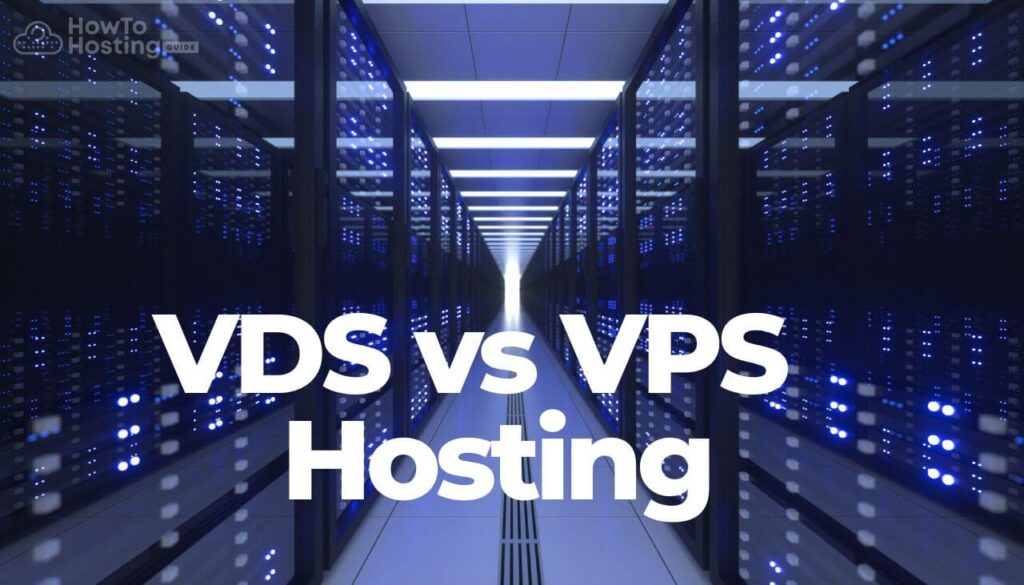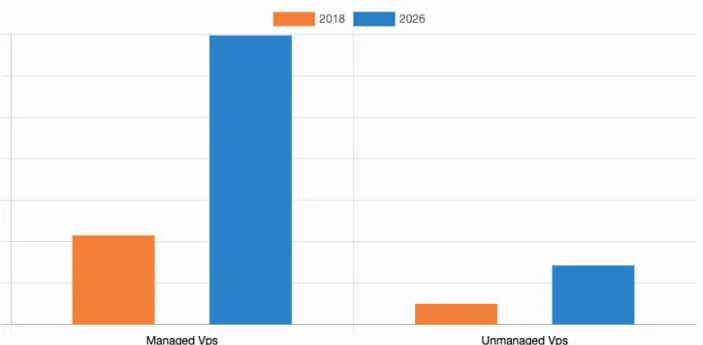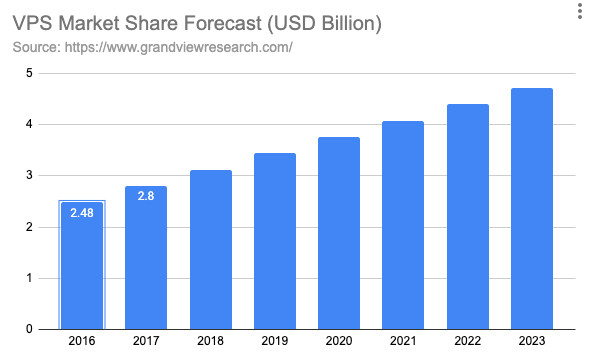On This Page: [hide]
This article has been created to show you what is VDS (Virtual Dedicated Server) and VPS (Virtual Private Server), compare VDS vs VPS hosting in depth and explain to you their main benefits and the key differences they have. Let us begin by first understanding what are they.

What Is VPS Hosting?
VPS hosting is a type of web hosting that utilizes virtual private servers to provide businesses and individuals with the power and flexibility of a dedicated server, with the cost savings of a shared hosting plan.
With VPS hosting, you get a virtualized environment that can be customized to meet your specific needs. This allows you to install custom software and applications, access dedicated resources, and run multiple websites without affecting other users on the same physical server.
There is also the more expensive option of using managed VPS, which is very similar to dedicated, but they differ from the resources standpoint. And the statistics of which one is more preferred clearly point managed VPS projected to being more popular in the future:
 Source: Alliedmarketresearch.com
Source: Alliedmarketresearch.com
By choosing VPS hosting, you can improve performance, increase reliability, and reduce hosting costs. To use VPS hosting, you will need to choose a hosting provider, select a plan, and then deploy your website or application. You will also need to manage your server, including performing regular maintenance and security tasks.
According to howtohosting.guide’s research on web hosting statistics, VPS has been the type of web hosting, which has grown most in popularity, when compared to other kinds of services in this sector, including VDS hosting:

When To Use VPS Hosting?
VPS Hosting is a great option for businesses that need a more robust and secure hosting solution. VPS Hosting provides a virtualized operating system that is isolated from the physical hardware, allowing for more control, scalability, and customization.
VPS Hosting is ideal for businesses that have outgrown shared hosting, but don’t need the full power of a dedicated server. It is also a great option for businesses that require more control over their hosting environment, such as companies that need to install custom software or applications.
VPS Hosting can also be used for businesses that need a high level of security and want to protect their data from external threats.
Another advantage of VPS Hosting is that it can be used to host multiple websites. With VPS Hosting, you can host multiple websites on the same server, allowing you to save money on hosting costs.
For example, businesses that need to host a blog, an ecommerce store, and a forum can use VPS Hosting to do so with ease.
What Is VDS Hosting?
VDS (Virtual Dedicated Server) hosting is a hosting solution that provides virtual private server resources to a single user without sharing them with other users.
It is a form of dedicated hosting that delivers a flexible and reliable hosting solution. On the other hand, shared hosting is a hosting solution where resources are shared among multiple users.
It is a much cheaper option than dedicated hosting, but it does not provide the same level of performance and security as VDS hosting does.
VDS hosting provides more control and flexibility over the server resources and is suitable for businesses that require more customized hosting solutions.
When To Use VDS?
VDS hosting offers more control and flexibility than VPS or shared hosting, but at a higher cost. When deciding whether or not to use VDS hosting, it’s important to consider your website’s needs and traffic.
If your website receives a high volume of traffic and needs a lot of resources which you lack in terms of technical skillset, VDS is the way to go.
VDS hosting can also be beneficial for websites that require root access, as it allows for more customisation of the server environment.
If your website requires substantial processing power, or involves resource-heavy applications such as e-commerce platforms, content management systems (CMS), or databases, a VDS provides a dedicated portion of server resources.
This ensures that your website operates smoothly without being affected by the resource demands of neighboring users, as can happen in shared hosting environments.
Another key scenario for opting for VDS hosting is when customization and control are paramount. Unlike shared hosting, which restricts access to server configurations, VDS hosting grants users root access.
This level of control allows for custom software installations, specific security configurations, and the ability to tailor the server environment to the unique needs of your project.
VPS vs VDS Hosting – Comparison Chart
In order to simply illustrate the key differences between these both types of virtual hosting, we have created a quick table, pointing out their key differences on the main criteria, based on which they function:
| Criteria | VPS | VDS |
|---|---|---|
| Pricing | Cheaper. | Expensive. |
| Security Level | High. | High. |
| Customization | Less. | More. |
| Resources allocation | Shared (Virtualized). | Dedicated (Virtualized). |
| Downtime risk | More (Virtual Machines). | Less (Dedicated Virtual Environment). |
| Technical Knowledge | Less if Managed VPS. More if Traditional. | More. |
What Are The Main Differences on VDS vs VPS Hosting?
Both VDS Hosting and VPS Hosting are two types of web hosting services that have some similarities, but also some distinct differences.
VDS Hosting is a type of hosting that provides a virtualized dedicated environment to which users can connect and manage their website or application. It allows users to have their own dedicated server, with their own resources and operating system. It is more expensive than VPS Hosting, but it has more advanced features and greater flexibility.
VPS Hosting is a type of web hosting service that provides a virtualized environment that is shared with other users. It is a less expensive alternative to VDS as it uses shared resources rather than dedicated resources. VPS also allows users to manage their website or application, but it is not as customizable or secure as VDS Hosting.
The main difference between VDS vs VPS Hosting is the type of environment each provides. VDS provides a dedicated virtual workspace for users, while VPS provides a shared virtual such.
Also, VDS Hosting is more expensive, but it offers more advanced features and greater flexibility. VPS Hosting, on the other hand, is less expensive but is not as secure or customizable as VDS Hosting.
Not only this, but also newer and faster types of web hosting using the power of virtualisation have also appeared, such as VPS hosting using cloud resources, which may introduced, suggesting that new solutions are constantly being introduced:

Conclusion on VDS vs VPS Hosting
To summarize, VDS vs VPS Hosting, the dedicated is more expensive, but provides more control and flexibility. VPS hosting is cheaper, but provides less of both. These types of hosting are all suitable for websites, however VDS hosting may be a better choice for more complex applications, especially if you lack the technical team and resources.
